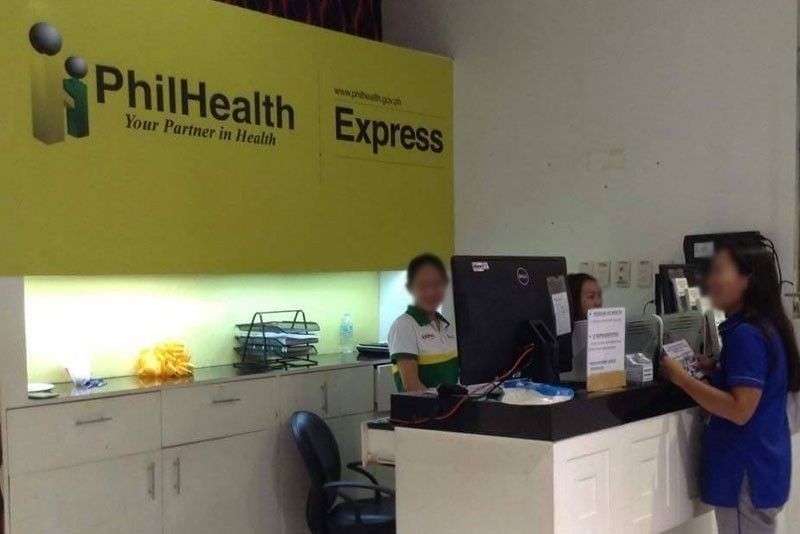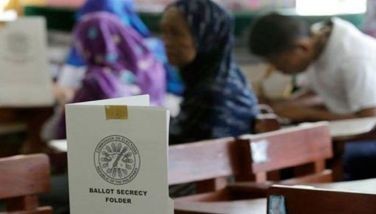‘PhilHealth employees willing to testify’

MANILA, Philippines — Aside from senior officials, there are employees of the Philippine Health Insurance Corp. who have expressed interest in testifying before the Task Force PhilHealth, the Department of Justice (DOJ) said yesterday.
DOJ Undersecretary Markk Perete said some PhilHealth employees have approached Task Force PhilHealth and offered to give information that could aid in the investigation into alleged anomalies in the corporation.
“There were employees who approached the Task Force, who wanted to testify. But we are validating first the content of their testimony and once we verify that what they would be giving us are important information and if they have documents to prove their allegations, then we might allow them to testify and maybe place them under the witness protection program,” said Perete.
Task Force PhilHealth has so far interviewed five witnesses: PhilHealth’s senior vice president and chief information officer Jovita Aragona, corporate secretary Jonathan Mangaoang and acting senior manager of PhilHealth’s Fact-Finding Investigation and Enforcement Division (FFIED) Ernesto Barbado, and two other former senior officials of the corporation who requested anonymity.
From these five witnesses, Task Force PhilHealth has only extracted preliminary information.
They would also be using the findings and investigation reports of the Senate and the House of Representatives in strengthening the case against certain individuals.
Aside from the Task Force, they have also formed teams that would focus on the legal and information technology (IT) aspects of PhilHealth.
The Task Force was given by President Duterte 30 days, or until Sept. 14, to finish its probe.
“We would probably have an initial report on the 14th (of September) and maybe ask for an extension to be able to continue with our work, just to make sure that we have all the grounds covered,” Perete said.
Duterte could take over or designate someone to temporarily steward PhilHealth to stop possible attempts to destroy or tamper any evidence that might incriminate officials on the alleged anomalies in the cash-strapped agency, Senate Minority Leader Franklin Drilon said yesterday.
Drilon issued the statement following reports that some PhilHealth officials are not cooperating with Commission on Audit (COA), which is seeking access to documents needed to validate suspicion of irregularities, while National Bureau of Investigation (NBI) probers were reportedly denied entry to some offices of the agency.
“Under the Constitution, the President has control over the executive department, which includes PhilHealth. He can order anyone to take over and secure the computer system,” Drilon said.
He stressed that denying the COA, the NBI or other authorized investigating agency access to documents is a criminal offense under obstruction of justice and offenders could face four to six years in prison under Presidential Decree 1829.
“It (refusing to cooperate) is an insult to the President, and is patently deplorable, given what the Senate unearthed,” Drilon said, referring to the various anomalies probed by the chamber, including the alleged overpricing in the purchase of information technology equipment worth P2.1 billion.
The chamber, convening as the Senate committee of the whole, also investigated the reported corruption in the disbursement of funds to hospitals through PhilHealth’s Interim Reimbursement Mechanism (IRM) amounting to P14.9 billion, of which only about P1.8 billion have been liquidated.
The panel, chaired by Senate President Vicente Sotto III, is expected to release its report soon on what it uncovered during the hearings, including the recommendation on PhilHealth officials who should be prosecuted on criminal offenses such as malversation of public funds.
The committee has also provided the DOJ all documents as well as testimonies of its inquiry to aid the latter’s investigation.
Senators had also voiced suspicions on the roof leak that damaged the IT rooms in PhilHealth’s Region 1 office in Pangasinan last week that could be intentional to cover up evidence. The office was the subject of an investigation by the Presidential Anti-Corruption Commission.
Rep. Mike Defensor of the party-list Anakalusugan said PhilHealth officials have been playing blind, deaf and mute to deeply rooted shenanigans in the state insurer company all these years.
“PhilHealth officials see no evil, hear no evil and speak no evil. We wonder why. They are even defending their case rates,” said Defensor, chairman of the public accounts committee of the House.
He said these executives knew the red flags that have been repetitively raised by the Commission on Audit for the last seven years, where the all case rates system and interim reimbursement mechanism had been questioned.
Defensor called on Health Secretary Francisco Duque III, being chairman of PhilHealth, to scrap the all case rates system as well as its IRM for hospitals primarily because this is the root cause of corruption in the agency.
“Instead of ordering a review, Secretary Duque should have scrapped the case rates and IRM altogether and ordered a recall of all PhilHealth funds advanced to hospitals and other recipients, and an audit of all reimbursement claims,” he said.
Dasmariñas City Rep. Elpidio Barzaga Jr., said the practice of PhilHealth to pay private hospitals more than what patients have actually incurred is not sanctioned by any circular, which means it is a glaring legal violation that can be used to file charges against officials. — Paolo Romero, Delon Porcalla
- Latest
- Trending

































